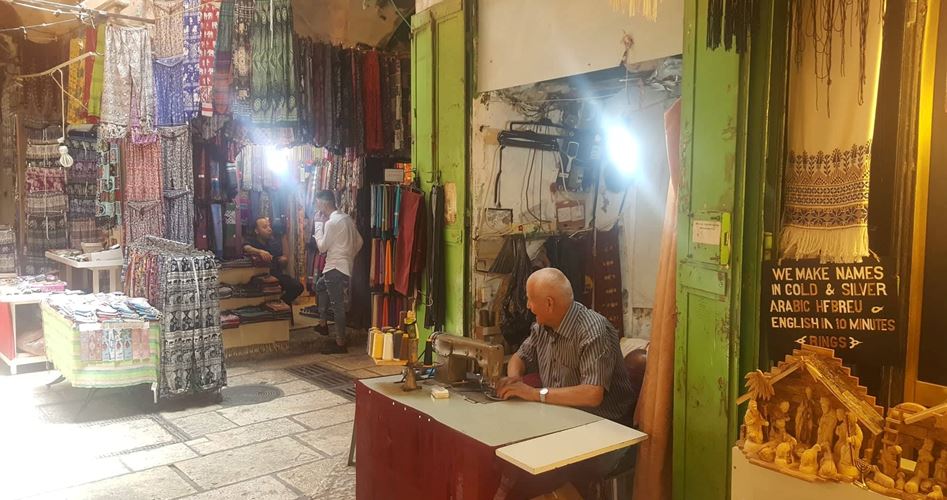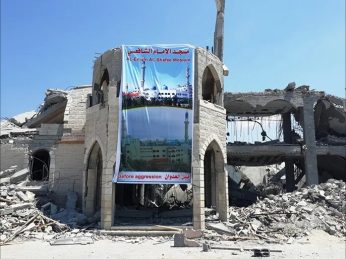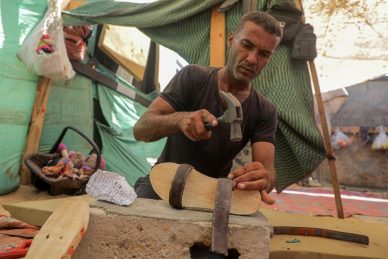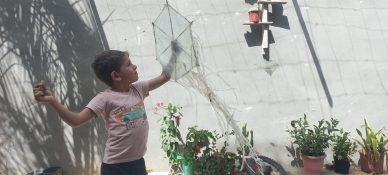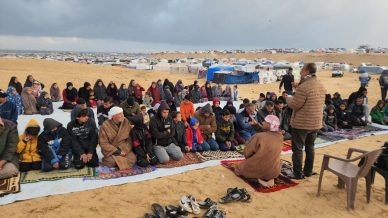Al-Bashura Market is one of the oldest markets located within the walls of the Old City of Jerusalem. It is located south of Alattarin Market. Al-Bashura means the castle and was once the headquarters of the Mamluk rulers and the history of the market goes back to the Roman era and it is adorned with beautiful marble columns. Israel after its takeover of East Jerusalem in the 1967 war judaized the market and changed its name to the Kardo Market.
Al-Bashoura today is a small market with 25 shops. It was a major market for second hand clothes when new brand clothes were not widespread with the residents of Jerusalem visiting the market to buy their clothes and shoes.
According to Robin Abu Shamsieh a researcher in the history of Jerusalem the length of the market is about 250 meters divided into two sections the southern section goes back to the era of the Crusades while the northern section goes back to the Ayyubid era.
He explained to the PIC that the market exists the way it does today because of renovations that took place in the eighties and nineties that led to the reopening of the market after long neglect.
He pointed out that the building takes the shape of an arch which includes structures below where many shops are located which were used to sell second hand items by the people of the city.
History of the Market
He adds that the market is different from the northern side of the Kardo Market and it is more modern than the Kardo Market is which dates back to the Roman period. The name of the market dates back to the Ottoman period. It was given such a name because part of it was allocated to sell second hand materials.
At the entrance of the market a small shop belonging to elderly Jerusalemite Abu Tayseer al-Karaki 84 the oldest shop owner in the Bashoura market is located. He has not changed his profession for 58 years; he works in the repair of second-hand clothes and he started working in the market at the age of 22. “We used to travel to Amman to bring second hand goods. We would repair and sell them here to people” he recalls.
He added to the PIC reporter that “part of Al-Bashoura Market was closed and when Israel occupied the city it re-opened the market and put a gate separating Arab and Jewish shops explaining that this gate opens during the day only. It also closes on Saturdays for the Jewish Shabath. Thus no one passes through the market because the road to Alsharaf neighborhood is closed therefore we close our shops early.”
Commercial stagnation
Al-Karaki explained that as modern life progressed and as people moved away from buying second-hand clothes the market has become less popular prompting merchants to change their profession into selling antiques and miscellaneous commodities. Most merchants who have worked in the market have died expressing his pride that he works as a tailor.
He complains about recession in the market explaining that he returns home early in the afternoon. “During the Jordanian era we used to make one Jordanian dinar a day and we were happy” he says.
Merchant Samir Noman Ghaith attributed commercial stagnation in the market to the campaign of incitement promoted by Israeli tour guides against Arab shops by urging tourists not to buy from them. However Ghaith insists that the owners of the shops will stay steadfast despite all obstacles.

